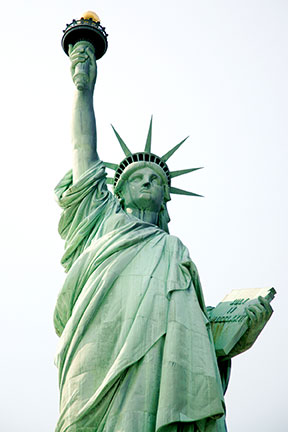Immigration Attorneys for Haitian Immigrants | Haiti & Haitian Visa lawyer | Haitian Immigration Lawyer

Contact a U.S. Immigration Attorney for Assistance with All Your Immigration Concerns!
Immigration attorneys across the country are available to help people who are seeking to immigrate from Haiti or to help Haitian immigrants who are already in the United States. Fill out the form at the bottom of this page to get in touch with an immigration lawyer who can help you!
History of Haitian Immigration
In 1990, there were approximately 290,000 people of Haitian descent living in the United States. Anthropologists have insisted however, that the number could be far greater — as many as 1.2 million Haitians — residing within the U.S. borders. Haitians have played an influential role in the U.S. workforce and it is important to understood how and why Haitians immigrated to the United States.
Five documented periods of Haitian immigration to the U.S. exist:
- the period of French colonization
- the Haitian revolution (1791-1803)
- the United States' occupation of Haiti (1915-1934)
- the period of the Duvaliers (1957-1986)
- the overthrow of President Aristide (1991)
Most of these waves were relatively minor until the 1950s, when Francois "Papa Doc" and Jean-Claude "Baby Doc" Duvalier rose to power. During the period between 1957-1986, political oppression prompted educated professionals, the middle class, and students to leave Haiti en masse. Haitians fled to the United States and other areas, such as Mexico, Puerto Rico, Jamaica, France, Dominican Republic, French Guyana, and Africa in search of political asylum.
A large number of Haitian immigrants came to the United States shores by boat in the 1980s, specifically to the shores of Florida. Because of their method of ingress, these Haitian immigrants were dubbed "boat people." In 1980, President Jimmy Carter gave these Hatians legal status through the Cuban-Haitian Entrant Program. This program, however, did not last long. Less than two years later, President Ronald Reagan instituted a policy of indefinite detention for the Haitian boat people refugees. Fortunately for many of these Haitian boat people, a federal court ruled against Reagan's detention plan in the summer of 1982. Thereafter, thousands of Haitian refugees were released. Permanent resident status was finally made available, and was granted to 40,000 Haitian immigrants to the United States in 1986.
Haitian immigration to the United States again soared in the 1990s, when President Aristide was removed from power by a military coup in 1991. This prompted a large group of Haitians to seek refuge in the U.S. once again. Unfortunately, policies under President George Bush and President Bill Clinton prevented many of these boat people from reaching the U.S. They were intercepted at sea and forced to return to Haiti. Detention camps were also set up and thousands of other Haitian refugees were detained. From 1995 to 1998, 50,000 Haitians were granted asylum and were allowed temporary legal residence in the United States; however, they were not allowed to become permanent residents like Nicaraguans and Cubans in similar situations. The Haitian Refugee Immigration Fairness Act was adopted in 1998, and immigrants were finally permitted to apply for permanent legal status in the country.
Political unrest has undoubtedly spurred each and every wave of immigration from Haiti; however, economic stagnation has, not surprisingly, accompanied political turmoil in Haiti. The result is that it is difficult to ascertain whether Haitian immigrants came to the United States as the result of political or economic reasons. Nonetheless, Haitians are now a vibrant part of American culture. Currently, the majority of Haitians are located in New York City, Miami, Chicago, New Orleans, Los Angeles, and Boston. Moreover, Haitian immigrants are employed in a wide variety of fields. From migrant workers to influential doctors, taxi drivers and cooks to college professors and scientists, Haitians have made their mark on America.
Contact Us
If you are a Haitian person seeking entry to the United States through one of the U.S. government's immigration services, please fill out the questionnaire and an experienced Immigration lawyer will contact you regarding your particular immigration matter. There is no obligation created by your submission of information. Immigration lawyers and law firms are available at all hours and will contact you to assist with any immigration concerns that you may have.